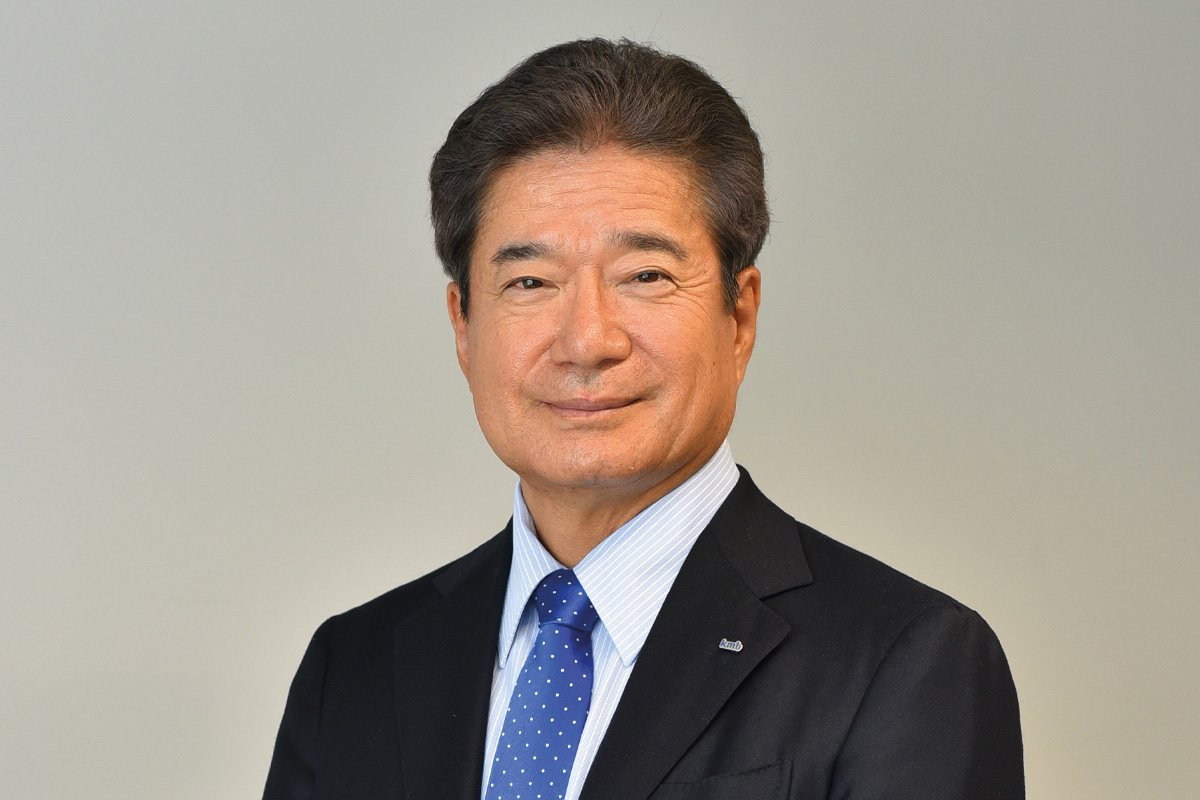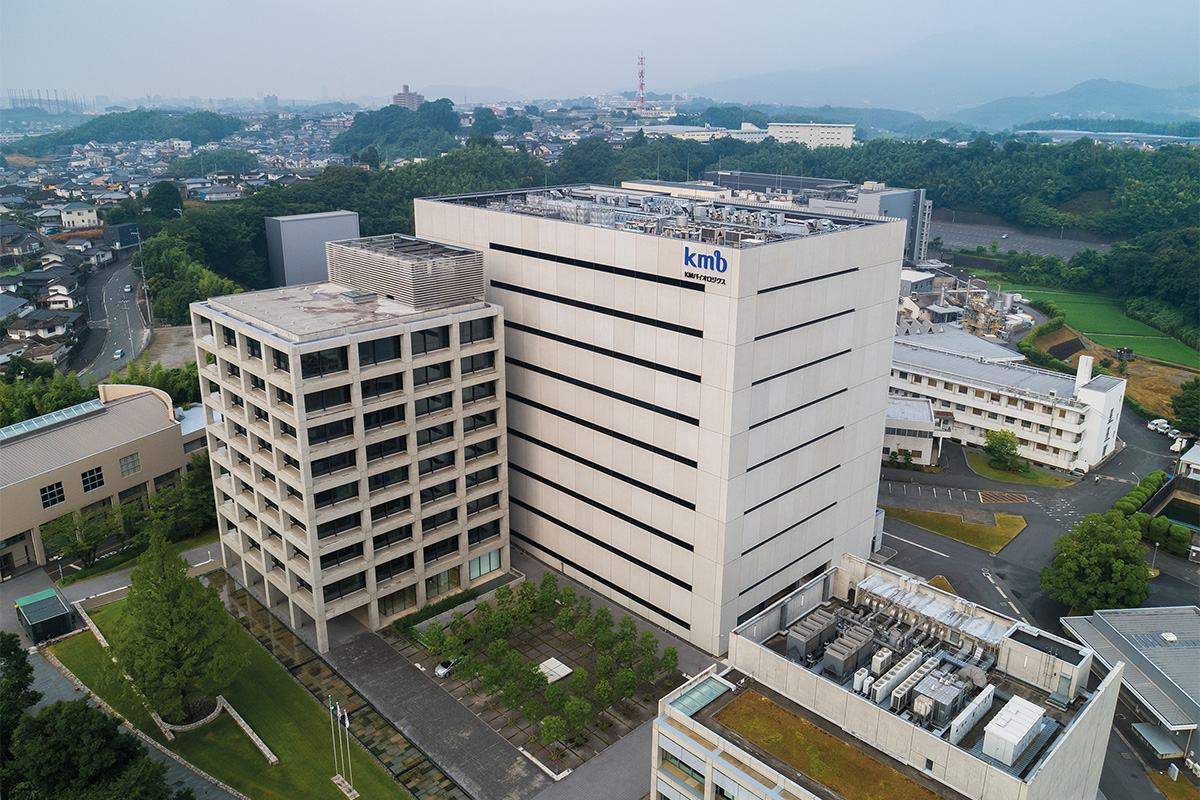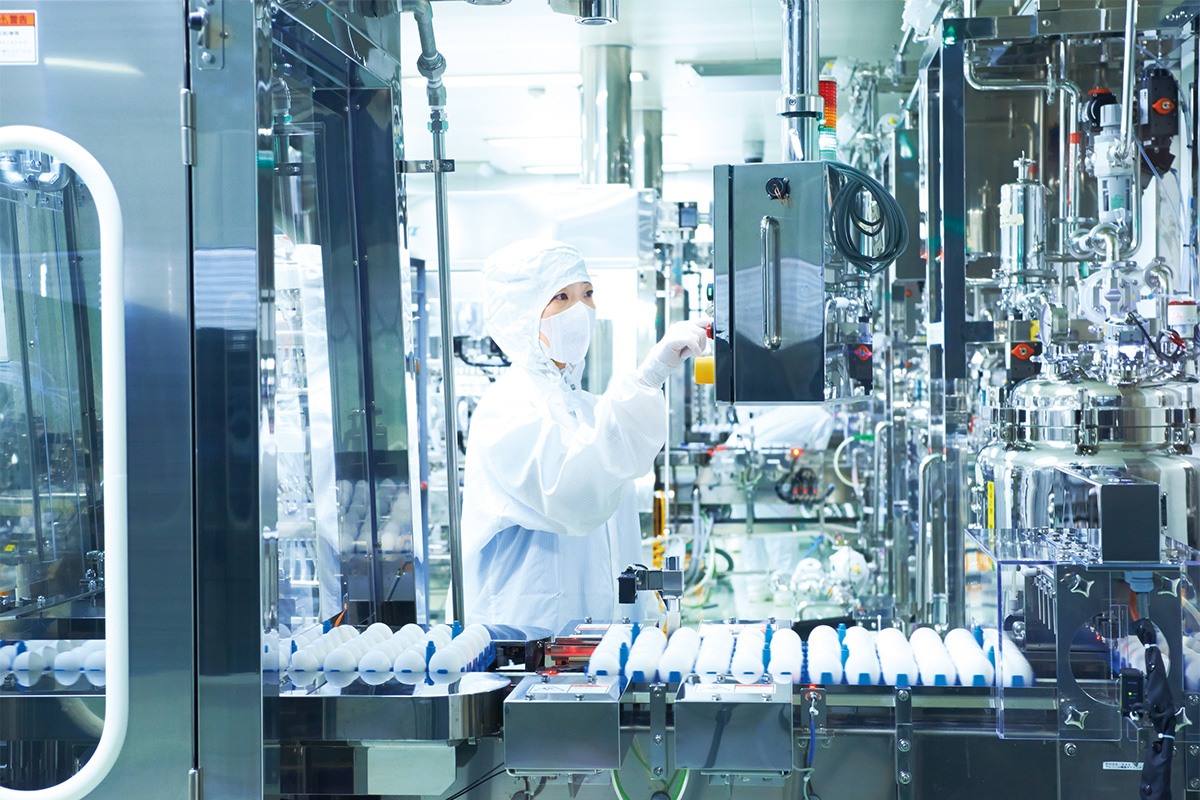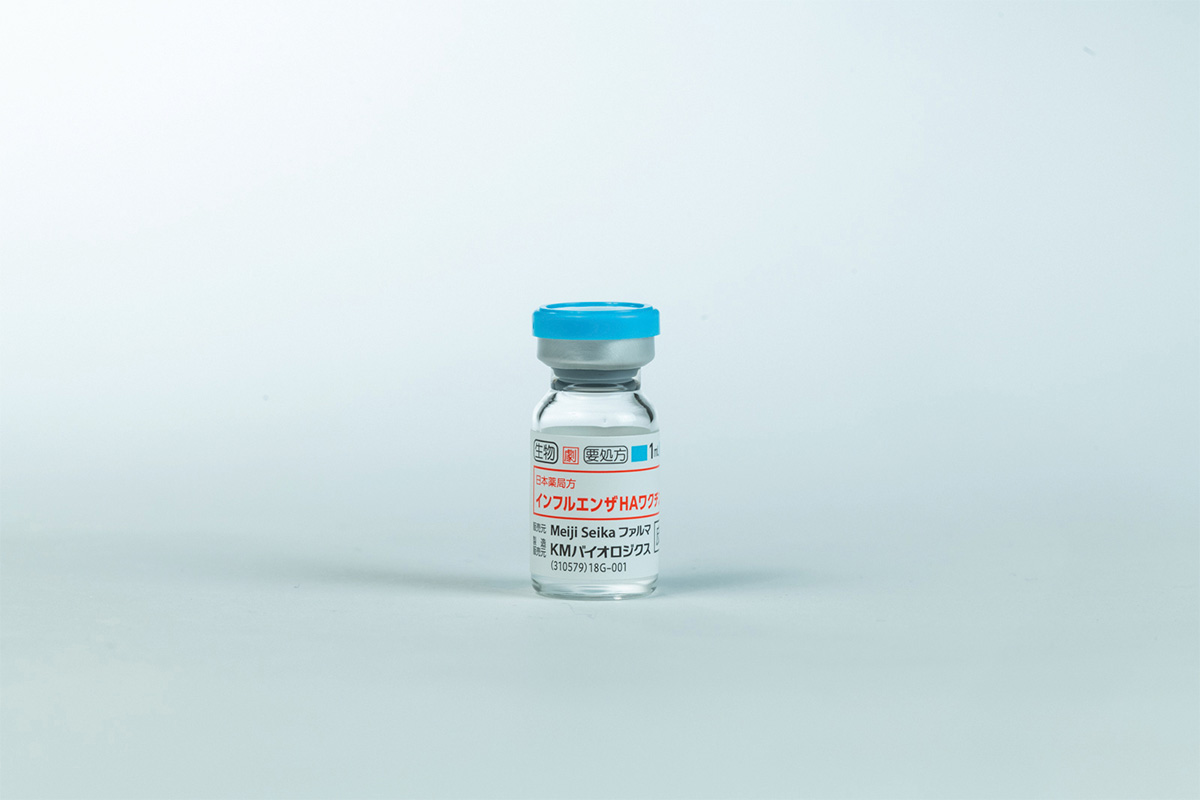KM Biologics plays a key role in safeguarding the health of Japan’s population, developing cutting-edge vaccines and blood-plasma products, and screening newborn babies.

Can you introduce your company?
We, KM Biologics, have made a new start as a pivotal member of the Meiji Group’s pharmaceutical segment, succeeding the human vaccines, blood-plasma products, veterinary vaccines, and newborn screening businesses of our predecessor, The Chemo-Sero-Therapeutic Research Institute (“Kaketsuken”) in 2018.
The company's history spanning over 78 years, including our predecessor, traces its origins to the mission of enhancing public health conditions to bolster Japan's post-war reconstruction.
In 1945, our company began manufacturing a vaccine for the now eradicated smallpox disease and have since become one of the only three companies in the world supplying modern smallpox and monkeypox vaccines. In 1988, we pioneered the application of genetic engineering technology to vaccine production in Japan, and in response to the 2009 outbreak of pandemic influenza, we were the first in the world to establish a domestic vaccine supply system. Today, we boast the capability to supply pandemic influenza vaccine to approximately half of Japan’s population, totaling around 57 million people.
Japan has been criticized recently for its slow regulatory process. It is known that it takes three to five years longer than in Europe or the US to take new regulations to the next step. However, since 2012, some changes occurred with the introduction of the Sakigaki System or the PMD Act. How would you rate the Japanese regulatory framework, and what improvement would you like to see in the coming years?
This issue is a significant challenge for the Japanese pharmaceutical industry. During the rollout of COVID-19 vaccines, the Japanese government adopted an urgent medical approval system, which they learned from the US. This system was employed for an oral medication for COVID-19, but not for other medicines. We had hoped that our vaccine would also receive approval, but unfortunately, we were asked to conduct a Phase Three study and gather more data, and as of now, the vaccine remains unapproved.
Even if we develop outstanding vaccines or medicines, their value is diminished if they are not utilized when needed. Many lives can be at risk during pandemics or potential bioterrorism attacks while we go through the lengthy process of proving the effectiveness and safety of our products. Instead of waiting longer, it is imperative for the government to have a solid determination and firmly decide to fully implement the Sakigake system or the urgent approval system. Furthermore, they should leverage technologies like AI, rather than solely relying on extensive clinical studies, to expedite the process.
In situations where we have a lot of time, thorough clinical studies are undoubtedly worthwhile. However, during emergencies or urgent circumstances, we might explore alternative approaches, such as assessing antibody levels. This could potentially reduce the need for extensive case studies and massive sample sizes to confirm safety. Leveraging existing data could be a valuable complement to our research efforts.
In Japan, there's an issue with the regulatory approval system, but there's another challenge worth considering. In Western countries, there is a well-established system for recruiting volunteers for clinical studies, particularly for pandemics or infectious diseases. They maintain a pool of willing participants, unlike Japan, where we often have to start from scratch. The process of finding volunteers for clinical studies can be time-consuming.
Comparatively, conducting clinical studies in Japan is more expensive. For pharmaceutical companies, it's a challenging endeavor to gather clinical samples and obtain approvals for vaccines and new drugs. This is a key reason why we don't see a substantial number of new drugs receiving approval in our country. Often, pharmaceutical companies attempt to secure approvals for new drugs in Western countries first, a situation referred to as "drug loss." The challenges we encounter in vaccine and new drug development involve the complexity, time constraints and high costs associated with these studies.
Typically, both Western pharmaceutical giants and Japanese pharmaceutical companies prioritize obtaining initial drug approval in Western countries. Subsequently, they conduct smaller-scale studies in Japan to secure local approvals. This trend has become predominant in recent years, which is why we don't see many new drugs initially launching in Japan.

KM Biologics HQ, Kumamoto, Japan
KM Biologics is a biotechnology company focused on the public health system. On the one hand, you have a strong track record domestically with developments such as your blood plasma products. On the other hand, you also developed eight world's first products to try to help on a global scale, like your AnactC in 2001. How are you contributing to public health outside of Japan?
As a subsidiary of Meiji Group, KM Biologics needs to be more global going forward. I'm a board member of a company called Meiji Seika Pharma, where I used to work for 35 years until about six years ago. Meiji Seika Pharma has established production and operational bases in several countries, including China, South Korea, Thailand, Indonesia and India. Leveraging these bases presents a significant opportunity to introduce KM Biologics' products into local markets.
During the COVID-19 crisis, foreign-made vaccines from companies like Moderna and Pfizer gained prominence in Japan, primarily due to domestic development delays. A similar trend is expected for foreign-made vaccines targeting seasonal influenza in Japan.
To adapt to this evolving landscape, we plan to harness excess production capacity in the domestic market for export, particularly with a focus on influenza and hepatitis A vaccines. Hepatitis A is a rare occurrence in Japan, attributed to the country's clean water supply. However, in regions with contaminated water, such as parts of Asia and Africa, there is a pressing need for the Hepatitis A vaccine. We see an opportunity not only to meet this demand but also to transfer our technology to these regions. In Japan, this vaccine is often referred to as the "traveler's vaccine," as it's primarily administered to business travelers heading to Asian or African countries. Given the modest domestic demand of 10,000 to 20,000 doses per year, it makes sense to explore production in Asia or Africa.
Recently, the government has granted approval for the export of our blood-plasma products, provided that domestic supply remains sufficient. Currently, we are moving forward with overseas supply of the agent used by hemophilia patients with factor IX deficiency.
In Western countries, patients afflicted with hemophilia A and B, experiencing factor VIII and factor IX deficiency, enjoy ample access to blood coagulation agents. In contrast, numerous patients in Asia lack access to these life-saving treatments. Our strategic approach is initially targeting these nearby countries and extending our products to those in need.

Vaccine manufacturing process
In our interviews with key players in the industry, such as Mitsubishi Tanabe Pharma, they mentioned the importance of relying on open innovation in the medical field to come up with innovative solutions and drugs. The use of technologies such as AI or gene editing is on the rise, and Mitsubishi Tanabe Pharma did that exact thing by partnering with Hacarus AI, a Canadian firm, to develop AI data-driven drug discovery. What role does partnership play in your business model? Are you searching for this kind of partnership overseas?
Partnerships play a very important role in our business strategy. When it comes to vaccines, we've witnessed the advent of a groundbreaking modality called messenger RNA (mRNA) technology, launched for COVID-19. This represents a significant innovation. In the more traditional vaccine development approach, we cultivate viruses to either inactivate them or reduce their toxicity for use in live vaccines. However, as we advance, it's clear that we must explore new modalities. We are working with Meiji Seika Pharma and other partner companies to jointly develop and implement innovative technologies in society.
In the realm of blood plasma products, there's a pressing issue with hemophilia, which is often driven by genetic deficiencies. Our products, such as Confact for factor VIII deficiency and Novact for factor IX deficiency, along with Byclot for patients with inhibitors, are crucial for treating these conditions. However, at some point in the future, the above products may no longer be used to treat the hemophilia patients due to the availability of genetical treatments. Therefore, we need to acquire new technologies in this field as well.
We are also actively involved in newborn mass screening, operating a system for mass screening in collaboration with local governments. This system involves taking a small blood sample from four to six-day-old newborns and conducting expanded screening for genetic deficiencies. This approach is instrumental in identifying conditions such as Severe Combined Immunodeficiency (SCID) or Spinal Muscular Atrophy (SMA), which, if left undiagnosed, could result in tragic outcomes by the age of one or two. Thanks to our screening technology, babies with these conditions have been living a normal life until now.
Although we possess the technology for newborn screening, we currently lack the corresponding treatment, therefore this is another area we need to work on acquiring new technologies.
In the vaccine field, we need to focus on utilizing a new modality. Concerning our blood plasma products, there's a need to link our screening technology with emerging genetic treatments to facilitate the development of new treatment agents for genetic diseases.
We actively engage with national biological gatherings and associations to establish new partnerships. Furthermore, we are open to collaboration with venture companies, provided they possess the necessary technology.
Mega pharmaceutical companies are primarily directing their efforts toward oncology and immunology fields, with limited investments in orphan drugs and rare diseases due to the small patient populations. Therefore, our strategy is to concentrate on rare diseases and explore genetic treatments through partnerships with venture companies, considering the scale of our business.

KM Biologics’ seasonal influenza vaccine
Meiji Group is known to be one of the biggest food and pharmaceutical groups in Japan. What kind of benefits and synergies has your merger with the Meiji Group provided to your firm, and how has it impacted your R&D capacities?
Meiji Seika Pharma has consistently pursued treatments and solutions for infectious diseases, thus maintaining a dominant position in the domestic market. By collaborating with them, we can expect significant synergies in the field of infectious diseases.
Our strategic vision extends beyond infectious diseases into the fields of oncology and immunology. Additionally, we are committed to leveraging our biotechnological capabilities to develop antibodies. With our expertise in utilizing viruses to develop treatment agents or biotechnology and the technology to produce antibodies using animal cells, we can push forward to pioneer new modalities and generate synergies with Meiji. We want to take on an important role as the pharmaceutical segment of the group.
0 COMMENTS